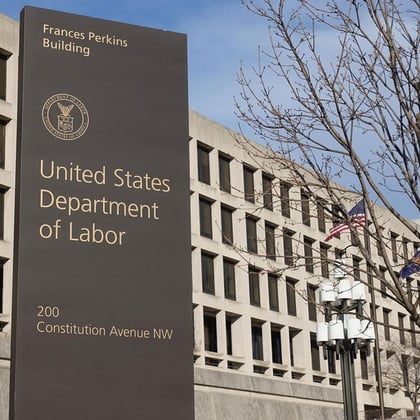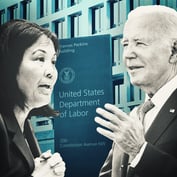What You Need to Know
- A survey by Oxford Economics elucidates the potential negative impacts of a change to the DOL's current independent worker classification.
- Up to one-fifth of independent financial advisors would rather retire than lose status as an independent contractor.
- The shift could also result in reduced access to investment advice and higher costs for investors.
The Labor Department’s new independent contractor rule would cause “significant industry disruption and create a great deal of confusion and uncertainty about independent contractor classification,” according to a just-released survey by Oxford Economics, commissioned by the Financial Services Institute.
Oxford’s analysis is based on a “detailed survey” sent to financial advisors (614 responses) and independent financial services firms (14 responses, or 17% of FSI member firms), and in-depth interviews with a set of three independent financial services firms and three independent financial advisors.
The effect of the DOL’s new rule “will not only be on independent financial services firms that have developed business models reliant on existing rules, but also on financial advisors who enjoy their independence, and Main Street investors served by independent financial advisors,” the report states.
The survey responses and interviews “indicate that the rule may result in industry disruption, significant costs, and potential harm to investors,” according to Oxford.
The DOL released on Oct. 11 a proposed rule that would replace the existing 2021 test under the Fair Labor Standards Act used to determine worker classification as either an independent contractor or an employee.
The new Labor rule would replace the 2021 rule that went into effect as a result of a ruling in March by the U.S. District Court for the Eastern District of Texas that Labor’s delay and withdrawal of its independent contractor rule violated the Administrative Procedure Act.
Labor’s regulatory flexibility agenda states that the department plans to issue a final independent contractor rule in May. David Bellaire, FSI’s general counsel, told ThinkAdvisor via email that Labor’s deadline is “unrealistic.”








 January 20, 2023 at 03:03 PM
January 20, 2023 at 03:03 PM












 Copyright © 2024 ALM Global, LLC. All Rights Reserved.
Copyright © 2024 ALM Global, LLC. All Rights Reserved.